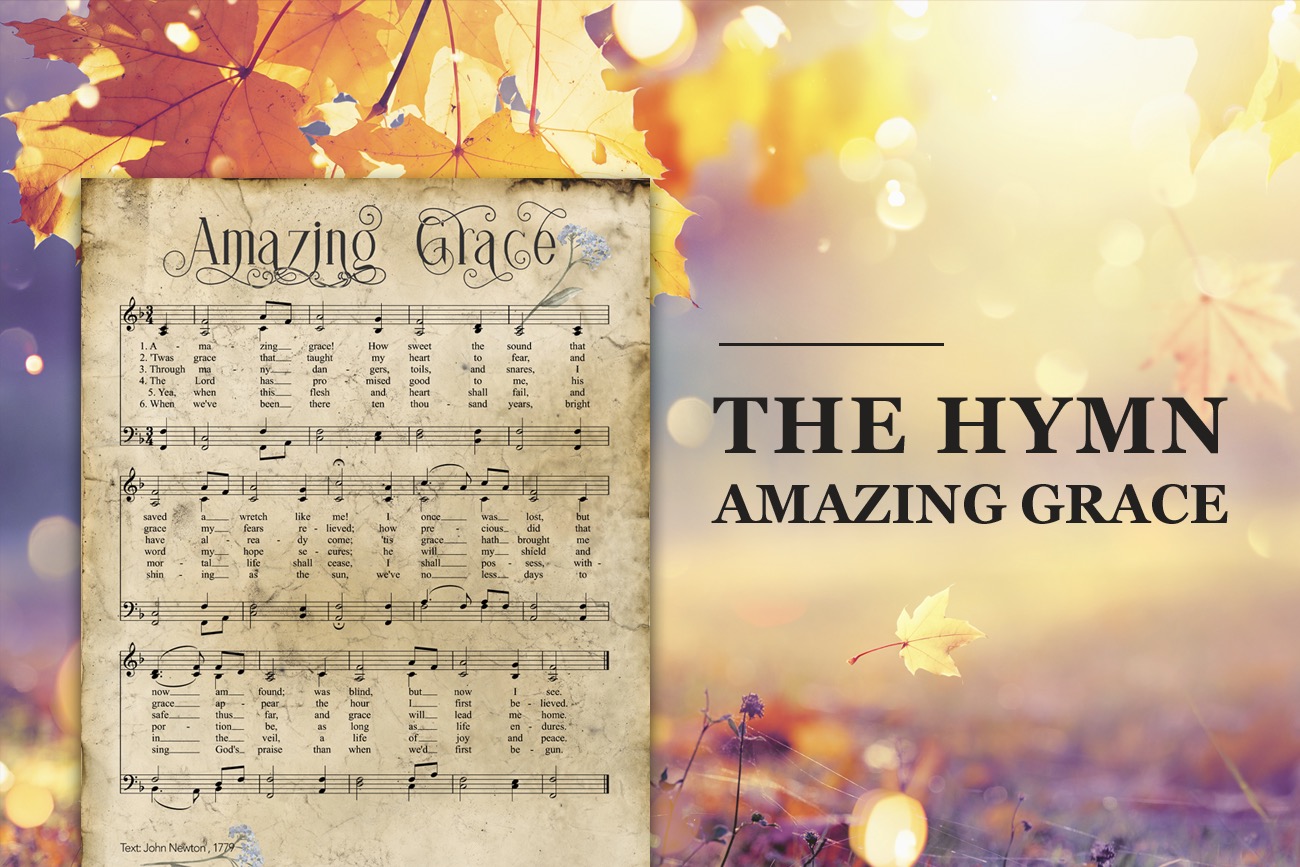Contributed by Dr. A. Merril Smoak, Jr., Dean, Jubilee College of Music
In his hymn Amazing grace! how sweet the sound John Newton used several New Testament sounding words and phrases to describe his Christian salvation experience:
Amazing grace! how sweet the sound [stanza one]
That saved a wretch like me!
How precious did that grace appear [stanza two]
The hour I first believed.
‘Tis grace has brought me safe thus far, [stanza three]
And grace will lead me home.
It is a little known fact that this well-know Christian hymn is actually based upon Old Testament scripture verses, specifically 1 Chronicles chapter 17, verses 16 and 17. This is a good reminder for worship leaders and Christian song writers today. Our new contemporary praise and worship songs must be based upon scriptures found in the Old Testament and the New Testament.
Amazing grace! how sweet the sound was written and first published in 1779 by British pastor and former slave ship captain John Newton (1725-1807). While serving at the church in Olney England Newton and his friend William Cowper (1731-1800) published a hymn collection entitled OLNEY HYMNS, IN THREE BOOKS. Amazing grace! how sweet the sound is hymn number 41 in this collection. In the Preface to OLNEY HYMNS Newton makes this statement concerning the arrangement of the hymns in the collection:
These hymns are distributed in three Books. In the first I have classed those which are formed upon select passages of Scripture, and placed them in the order of the Books of the Old and New Testament.
In OLNEY HYMNS the original six stanzas of Amazing grace! how sweet the sound were placed in “BOOK I. ON SELECTED PASSAGES OF SCRIPTURE” with the heading:
I. CHRONICLES
XLI. Faith’s review and expectations.
Chap. xvii. 16. 17.
Thus the words of John Newton’s famous hymn are based upon scripture verses found in First Chronicles, chapter 17, verses 16 and 17. It is interesting to ponder what Newton had in mind when he chose the words of king David’s prayer found in 1 Chronicles 17:16-17 to describe his Christian salvation experience in his hymn Amazing grace! how sweet the sound:
16 Then King David went in and sat before the Lord; and he said: “Who am I, O Lord God? And what is my house, that You have brought me this far? 17 And yet this was a small thing in Your sight, O God; and You have also spoken of Your servant’s house for a great while to come, and have regarded me according to the rank of a man of high degree, O Lord God.
In chapter 17 of 1 Chronicles the prophet Nathan tells David that God will not allow him to build a permanent house for the ark of the covenant that has been dwelling in a tent. Instead God has chosen one of David’s sons to build a house for the ark of the covenant. Nathan explains to David what will happen in verses 11-12:
11 And it shall be, when your days are fulfilled, when you must go to be with your fathers, that I will set up your seed after you, who will be of your sons; and I will establish his kingdom. 12 He shall build Me a house, and I will establish his throne forever.
The immediate result of this prophecy is that David’s son Solomon will build a temple in Jerusalem that will house the ark. But more importantly Nathan’s words hint that the coming Messiah, King Jesus, will be from David’s lineage: “I will establish his throne forever.” (verse 12). Unknowingly David also hints at the coming of Jesus through his family line in verse 17: “and You have also spoke of Your servant’s house for a great while to come.”
Yes, David was disappointed that he would not be allowed to build the temple. But in verses 16 and 17 he wonderfully proclaims his faith and trust in the God who has chosen him to be king in Israel. Through David’s seed God’s forever house, Jesus, will be established. With this Old Testament story in mind John Newton also writes about his faith and trust in the God who has chosen him to proclaim the Good News of the Gospel of Jesus the Christ through preaching and hymn writing:
Amazing grace! (how sweet the sound)
That sav’d a wretch like me!
I once was lost, but now am found,
Was blind, but now I see.
Both David and John Newton were men who struggled to consistently walk in God’s ways. Both men were sinners who were saved by God’s amazing grace. The sixth and final stanza of the hymn Amazing grace! how sweet the sound is a fitting epitaph for remembering both of these men who experienced God’s amazing grace:
The earth will soon dissolve like snow,
The sun forbear to shine;
But God, who called me [David & John Newton] here below,
Will be forever mine.
May each of us also experience and know God’s amazing grace!


